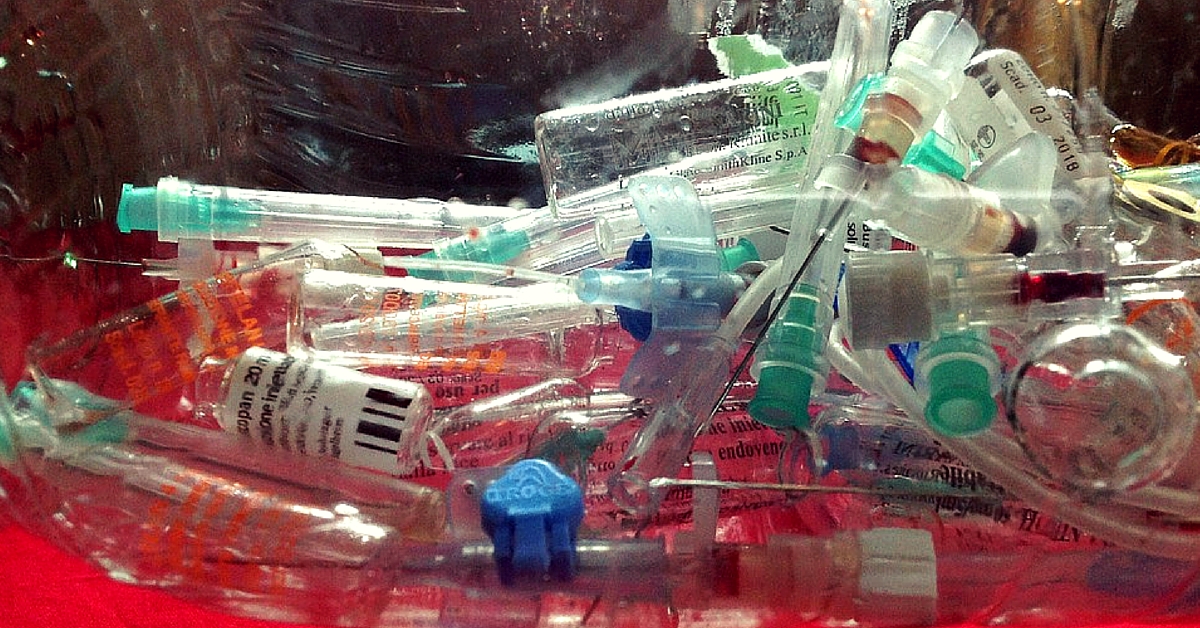India Produces 484 Tonnes of Biomedical Waste a Day. Here’s How the Govt Plans to Dispose It.
The government released a new set of rules for safe and environment-friendly disposal and treatment of biomedical waste generated from health care centres.

Only 15% of all biomedical waste is hazardous, but the treatment of all waste is important, not just for the public but also healthcare workers. It’s also an environmental concern, as the amount of waste generated during treatment, diagnosis, immunisation or tests per day is enormous.
Case in point: India generates about 484 tonnes of biomedical waste per day, from its 160,000 health-care centres. To be more specific, about 1-2 kilograms per bed a day from hospitals, and 600 grams per bed a day from clinics.
It includes all human and animal anatomical waste, syringes and other used treatment equipment.
In a new ruling released by the government on Sunday, March 27, the segregation and treatment methods of biomedical waste was amended, keeping in mind the need for a clean and green environment.
Blood samples, lab samples and microbiological waste should be pre-treated on-site before being disposed of.

Source: pixabay.com
The categories for biomedical waste have been reduced from 10 to four, to improve segregation. Also, a bar-coding system is also soon to be introduced, where all biomedical waste containers or bags are going to be tracked by the government. This is to ensure that the movement from its manufacturing to treatment facilities is monitored.
Besides this, chlorinated plastic bags, blood bags and gloves are to be phased out in about two years.
Also, common biomedical waste treatment facilities (CBWTFs) within 75 kilometres of a healthcare centre have to ensure that waste is collected routinely and regularly. Those health care centres that are out of that radius distance will have to set up their own waste disposal and treatment facilities.
Standards for incinerators at CBWTFs have been tightened, to reduce emissions. Usually, such treatment facilities produce as much air emissions and waste water as factories, which is a major enviornmental hazard.
To make managing biomedical waste simpler, the new ruling also gives automatic authorisation to bedded hospitals, while non-bedded hospitals have a one-time authorisation.
The ruling also extends to vaccination camps, blood donation centres and surgical camps.
Like this story? Or have something to share? Write to us: [email protected], or connect with us on Facebook and Twitter (@thebetterindia).
If you found our stories insightful, informative, or even just enjoyable, we invite you to consider making a voluntary payment to support the work we do at The Better India. Your contribution helps us continue producing quality content that educates, inspires, and drives positive change.
Choose one of the payment options below for your contribution-
By paying for the stories you value, you directly contribute to sustaining our efforts focused on making a difference in the world. Together, let’s ensure that impactful stories continue to be told and shared, enriching lives and communities alike.
Thank you for your support. Here are some frequently asked questions you might find helpful to know why you are contributing?


This story made me
-
97
-
121
-
89
-
167













